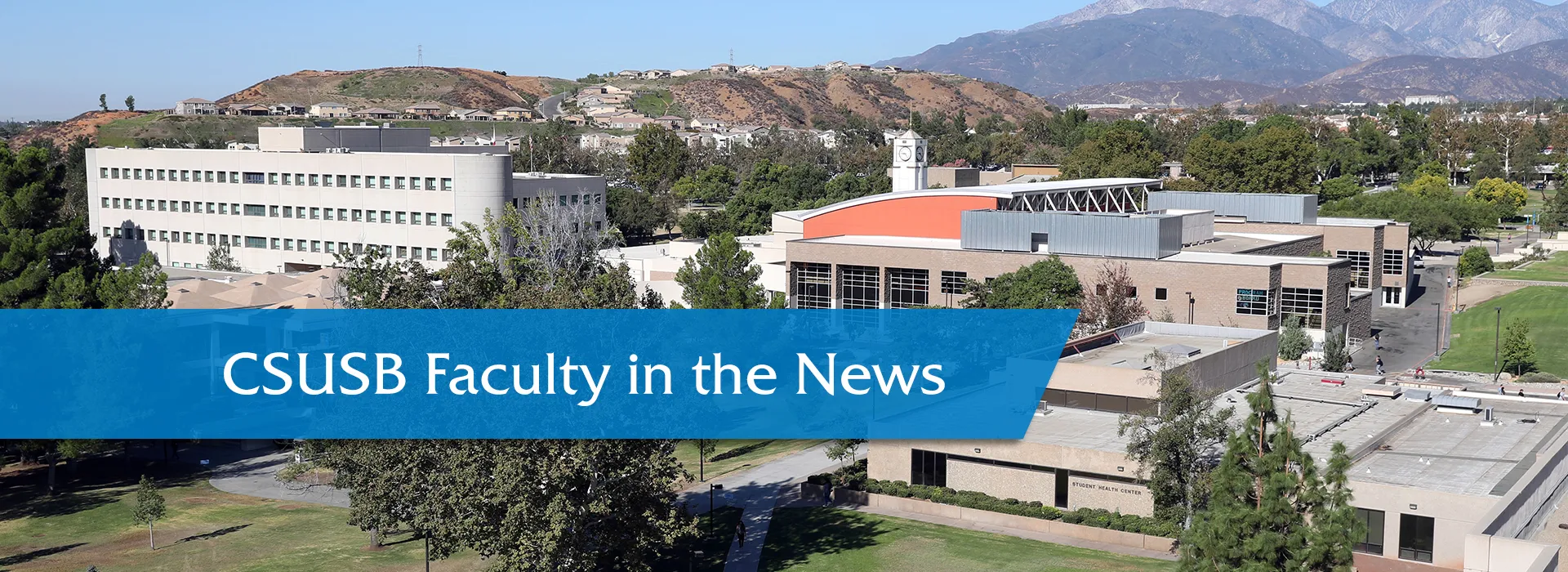NOTE: Faculty, if you are interviewed and quoted by news media, or if your work has been cited, and you have an online link to the article or video, please let us know. Contact us at news@csusb.edu.
In wake of Pittsburgh shul massacre, ‘forecast is stormy weather,’ says CSUSB professor The Times of Israel – The New York Jewish WeekNov. 6, 2018 At synagogues, JCCs and other Jewish institutions across the United States, leaders are looking into upgraded security measures following the Pittsburgh massacre that left 11 Jewish worshippers dead.In interviews across the country this week, experts and community observers offered a combination of good news and bad news. Anti-Semitism is not, of course, foreign to the United States, but it is not government sponsored — or government sanctioned — as has been the case in other countries, the experts agreed.“It’s getting worse, but it is not Nazi Germany,” said Brian Levin, director of the California-based Center for the Study of Hate and Extremism. “This is an inflection point for American Jews, a turning point. It’s a problem. It’s going to grow. At times of political fracture” — such as the two years of the Trump administration — “Jews are among the likeliest scapegoats.” In fact the Pittsburgh shooter singled out the work of HIAS, the historically Jewish resettlement organization for refugees of all faiths, as motivation for his rampage.But, Levin added, “The hurricane that’s hitting Europe” — open anti-Jewish violence in such countries as France and Sweden — “is not hitting the United States.”“The forecast is stormy weather,” said Levin, who has studied the arc of anti-Semitism, and other forms of prejudice in this country over the last 25 years. Most studies indicate that 90 percent of the U.S. population has favorable opinions about Jews, with an estimated 49 percent openly holding anti-Semitic views. Which means that “anti-Semitism is endorsed by millions of Americans.”Is the current outbreak of anti-Semitism a surprise?No, said Levin. Anti-Semitism and other forms of hate speech spread easily on the internet, he said. “You can’t ignore virtual anti-Semitism.” The biggest threat in the future, he said, will probably come not from organized groups but from “loners and small cells” of white nationalists.Read the whole article at “Increasingly on edge, Jews asking: How bad is it?”
Dean of CSUSB’s College of Natural Sciences helps with OSU’s campaign to promote diversityThe Daily Barometer – Orange Media NetworkNov. 5, 2018 Sastry G. Pantula, dean of CSUSB’s College of Natural Sciences, was part of a strategic plan committee at Oregon State University to help promote diversity at the college.OSU’s Office of Institutional Diversity was created in 2015, along with a newfound campaign for the 2018-19 school year: We Have Work To Do. The campaign is closely tied to OSU’s first comprehensive diversity strategic plan called Innovate & Integrate: Plan for Inclusive Excellence. The plan was developed in coordination with a Strategic Plan Committee, which included a diverse range of university students, faculty and staff, including Pantula.“My role in the committee was to brainstorm with other committee members and bring my experience and commitment to my core values to the table,” said Pantula, who is former dean of OSU’s College of Science. “[The committee] met several times, including a day-long brainstorming session with an external facilitator. We did several group activities to brainstorm ideas and prioritize the list to develop a draft of strategic goals.”“OSU has a long way to go in enhancing diversity,” Pantula said. “Recruiting diverse faculty, staff and students is one big step. Having a culture that makes everyone feel welcome and included is a much bigger step. Retention gets harder without an inclusive excellence culture.”Read the whole article at “We Have Work to Do campaign seeks to ‘articulate OSU’s values.’”
These news clips and others may be found at “In the Headlines” at inside.csusb.edu.
